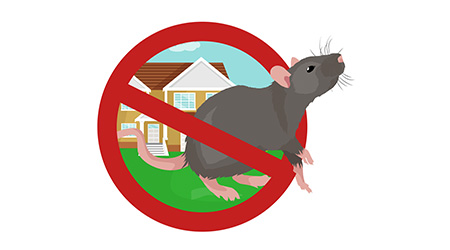
Contributed by the National Pest Management Association
For Rodent Awareness Week – Oct. 17–23 – the National Pest Management Association (NPMA) is reminding commercial facilities to take the proper precautions to prevent an infestation that could be detrimental to the success of their business. Commercial facilities are a beacon for pests as they provide ample food, water and shelter for rodents looking to nest and breed. However, there are steps facility managers can take to prevent rodent infestations.
Throughout Rodent Awareness Week and peek rodent season, NPMA is sharing the top five tips for facility managers and their teams to prevent rodent infestations. These tips can help prevent an infestation before it starts by deterring rodents who may be looking for a source of food or shelter.
• Perform regular rodent inspections
Knowing where to look and what to look for can help solve a rodent issue before it gets worse. The top sign of a rodent issue is seeing a live or dead rodent. Some other common signs of a rodent infestation are droppings, gnaw marks, nests, urine stains, and tracks or rub marks. It is also important to inspect any packages for pests before bringing them inside your facility.
• Remove any potential food sources regularly
Rodents are attracted to food which allows their populations to survive and thrive. Removing garbage in and outside your building regularly, cleaning high traffic areas, and storing any food products in sealed containers can keep rodents out by eliminating food sources that may attract them
• Eliminate potential rodent harborage areas
Along with food, rodents also need shelter and they can find it in some obscure places including stairwells, shelves, lockers, worktables and machinery. Storage areas make the ideal home for a rodent as they are attracted to moist, dark places. Ensure that materials are not stored packed together, easily providing cover to pests. Outside your facility, overgrown lawns and other vegetation can also become potential home for rodents, so regular landscaping is extremely important.
• Reduce possible entryways
The best way to prevent a rodent infestation is to stop them from getting inside. Rodents, however, are difficult to completely exclude as mice can fit through holes the size of a dime and rats a hole as small as a quarter. Help prevent access by ensuring areas where utility lines enter are sealed, sealing any cracks or holes in the outside of buildings, screening vents and windows, repairing any broken doors or windows, and installing door sweeps.
• Work with a licensed pest control professional
NPMA recommends that businesses work with a licensed pest control professional to handle any pest issues. They can assist in implementing an integrated pest management plan (IPM), a pest control practice that focuses on eliminating pests’ needs like food, water and shelter, to ensure pests are managed properly as they quickly adapt to the current changes in their living environment. Partnering with a pest control professional during these times will help to protect our food supply and our critical national infrastructure, while also continuing to decrease the threat of pest-borne disease.
Click here for additional pest control tips.

 Celebrating BSCAI's 60th Anniversary eBook
Celebrating BSCAI's 60th Anniversary eBook The Down and Dirty on Cleaning in Virus Season
The Down and Dirty on Cleaning in Virus Season How Surfactant Use is Expanding in Commercial Cleaning
How Surfactant Use is Expanding in Commercial Cleaning